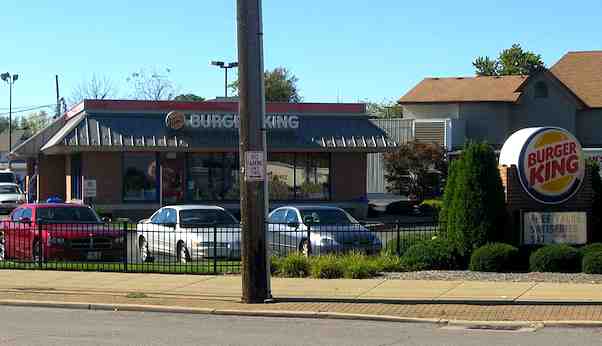
Burger King maintains an organizational culture that supports high performance among employees. This work culture is the set of values, traditions, and habits that influence the behaviors of workers. Burger King’s market position as one of the world’s biggest quick-service restaurant chains is partly based on its culture of performance. The company keeps employees aligned to this organizational culture to ensure a unified approach in developing human resources for the fast-food business. The external factors described in the PESTLE/PESTEL analysis of Burger King are included in developing this work culture for business synergy and high business performance aligned to global market variables.
Burger King’s organizational culture puts emphasis on attitude and performance, while ensuring an enjoyable workplace and compliance with rules. This company culture promotes employee behaviors necessary for achieving high-quality output in the foodservice business. Thus, the quality objectives of Burger King’s mission and vision are supported through the company’s work culture and its influence on human resource effectiveness and motivation for excellence.
Traits of Burger King’s Culture
Burger King’s organizational culture is based on the goal of global business growth. The fast-food company believes its cultural traits motivate high performance. The following are the main traits of Burger King’s company culture:
- Bold and empowered
- Accountable
- Fun
- Meritocratic and performance-driven
Bold and empowered. Burger King’s organizational culture empowers employees to achieve high performance. Such a cultural trait reflects this corporate culture’s support for flexibility and autonomy among employees at the company’s restaurants, offices, and other facilities. Different levels of Burger King’s organizational structure (business structure) have their corresponding levels of autonomy. As such, this business culture allows Burger King to maintain the resilience needed for global business growth.
Accountable. Burger King’s employees are accountable for their actions. This trait of the company’s organizational culture ensures that, with autonomy, employees follow the rules and face the consequences of their decisions. Accountability in Burger King’s company culture contributes to quality consistency in service and in food and beverage products, menu attractiveness, and the minimization of errors and deviations in human resources.
Fun. This trait of Burger King’s organizational culture focuses on employee morale. An enjoyable and fun workplace also reduces employee turnover, which has significant effects on the foodservice company’s financial performance. Through this organizational culture, Burger King manages to attract and keep qualified workers. The company applies the fun factor through management approaches as well as benefits and incentives in the compensation system.
Meritocratic and performance-driven. Burger King’s work culture encourages employees to maintain high performance. This characteristic of the organizational culture is aligned with the company’s policy of using performance-based appraisals in fast-food operations. In this way, Burger King’s employees know and rightly expect that having better performance can improve their career options in the company.
Focus on merit and performance, as a cultural factor, relates to Burger King’s corporate social responsibility (CSR) and ESG strategy for sustainability and stakeholder management goals, which include a work environment where workers, as stakeholders, are supported in their career development. Moreover, this business culture motivates workers to focus on performance, which enhances organizational capabilities. In this regard, business strengths, such as the ones identified in the SWOT analysis of Burger King, are reinforced through this company culture.
Burger King’s Organizational Culture: Advantages & Disadvantages
A primary advantage of Burger King’s culture is its support for high performance, which is emphasized through meritocracy and empowerment. Empowerment and autonomy are motivating factors for high performance among foodservice employees. The cultural trait of accountability also ensures that, even with autonomy and flexibility, errors and related costs are minimized at Burger King.
This company culture contributes to business resilience despite the competitive forces described in the Five Forces analysis of Burger King. Such external forces involve large and aggressive competitors, like McDonald’s, Subway, and Wendy’s, as well as Dunkin’, Starbucks, and other foodservice businesses that also use their organizational culture to support competitiveness.
While Burger King’s company culture is strongly manifested in corporate offices, it has limited implementation in restaurant franchise locations. This disadvantage is due to the nature of franchising. Franchisees have varying approaches to implementing this organizational culture in Burger King restaurants.
References
- Burger King – BK Corporate Responsibility.
- Farndale, E., Horak, S., Piyanontalee, R., Puffer, S. M., & Vidović, M. (2025). Looking back to look forward: Disruption, innovation and future trends in international human resource management. International Business Review, 34(1), 102362.
- Iddrisu, I., & Adam, A. (2025). Nexuses between induction training and on the-job-training on employee job performance: The mediating role of organizational culture. International Journal of Organizational Analysis, 33(4), 879-895.
- Malheiros, C., Gomes, C., Lima Santos, L., & Campos, F. (2025). Monitoring revenue management practices in the restaurant industry – A systematic literature review. Tourism and Hospitality, 6(1), 44.
- Mokhchy, J., Chen, G., Ahmad, S., Khan, Y. A., Zhang, J., & Ahmed, M. (2025). Dynamic impact of leadership style, knowledge-sharing, and organizational culture on organizational performance. Current Psychology, 1-16.
- Moss, J. (2025). Why Are We Here? Creating a Work Culture Everyone Wants. Harvard Business Press.
- Restaurant Brands International Inc. Form 10-K.